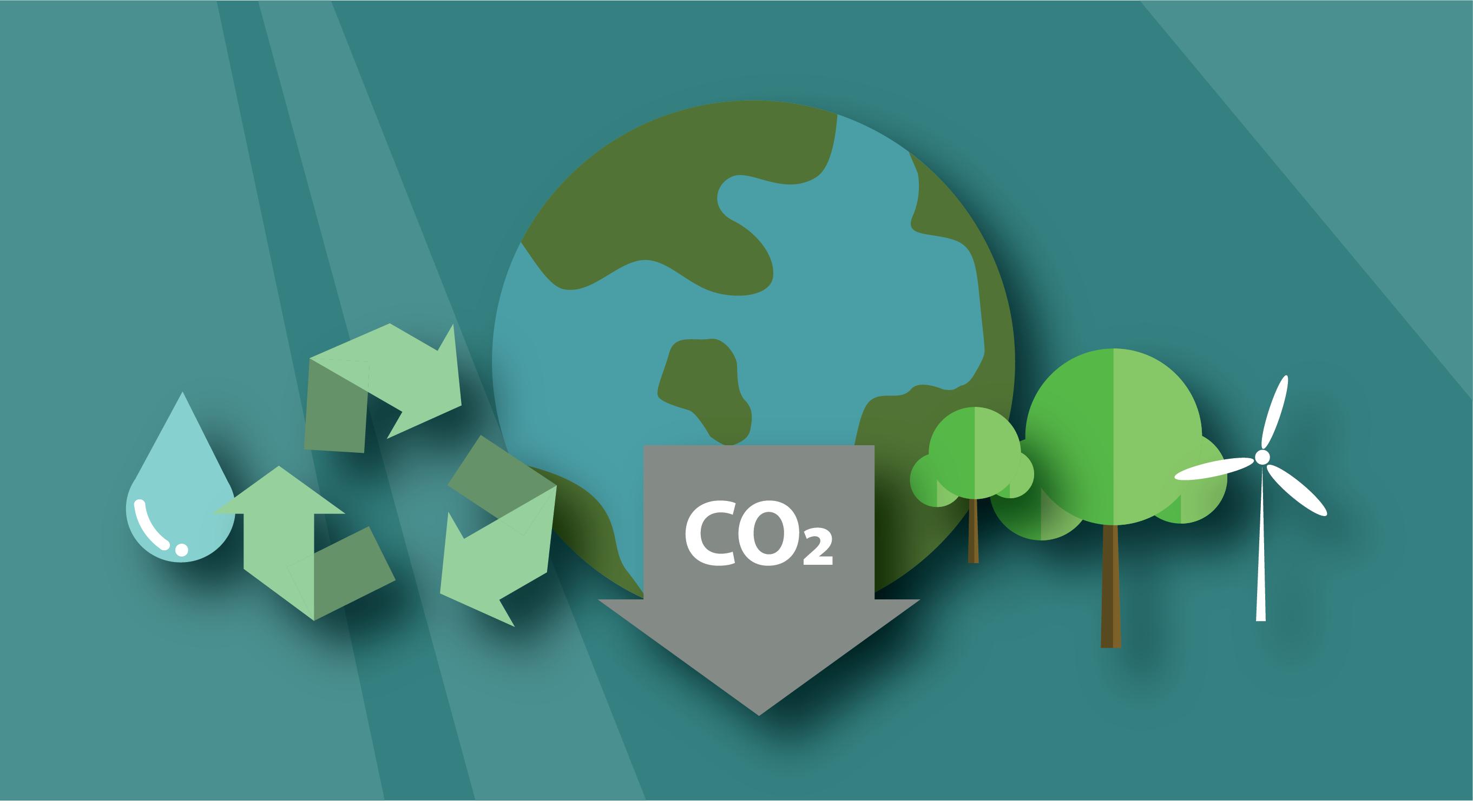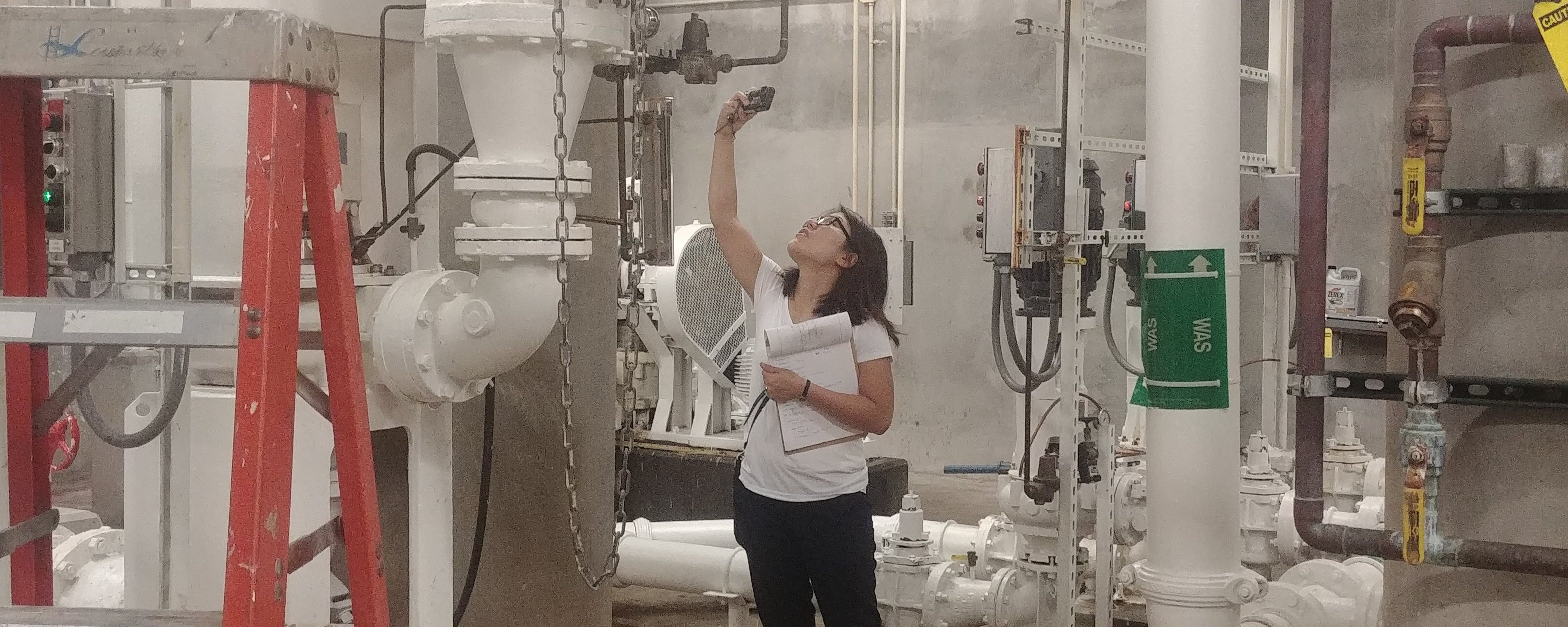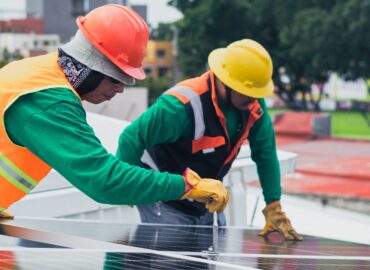At SEDAC, we are committed to reducing the energy footprint of the State of Illinois by helping to grow the energy efficiency workforce. This second post in our "Growing the Energy Efficiency Workforce" series addresses the possible need to "rebrand" energy efficiency. (Read the first post here.)
Lack of Awareness of energy efficiency jobs is a huge barrier to getting diverse and qualified candidates. Many people haven't heard of energy efficiency jobs, while others may not find "energy efficiency" inherently appealing. Even those who provide energy efficiency services might not consider themselves part of the energy efficiency workforce; perhaps energy efficiency services are only a small part of what they provide.
Does energy efficiency need to be rebranded?
How do you identify your role in our industry? Do you consider yourself part of the energy efficiency workforce? Or do you describe what you do differently? What words should the energy efficiency industry use to raise awareness and to inspire young people to join us? There may be other terms that better connect with job seekers, both young people and skilled professionals. Here are a few possibilities.
 Green jobs or sustainability jobs. If energy efficiency seems like too specialized of a category, consider using more broad terms like "green jobs" or "sustainability jobs." The distinguishing feature of the term "green jobs" is its association with policy. For instance, the Green Jobs Act of 2007 (H.R. 2847) focuses on training and tracking of "green jobs." Indeed, the Bureau of Labor Statistics does not collect data on energy efficiency jobs, but they do collect data on green jobs, and include energy efficiency in these jobs. The proposal to establish a "Green New Deal" to address economic development and climate change connects the language of job creation and "green" economic development and goals. The term "green jobs" can be a great way to engage new talent who are aware of the concept through policy and government promotion. Many young people are interested in careers where they can make a difference to help combat climate change.
Green jobs or sustainability jobs. If energy efficiency seems like too specialized of a category, consider using more broad terms like "green jobs" or "sustainability jobs." The distinguishing feature of the term "green jobs" is its association with policy. For instance, the Green Jobs Act of 2007 (H.R. 2847) focuses on training and tracking of "green jobs." Indeed, the Bureau of Labor Statistics does not collect data on energy efficiency jobs, but they do collect data on green jobs, and include energy efficiency in these jobs. The proposal to establish a "Green New Deal" to address economic development and climate change connects the language of job creation and "green" economic development and goals. The term "green jobs" can be a great way to engage new talent who are aware of the concept through policy and government promotion. Many young people are interested in careers where they can make a difference to help combat climate change.
Sustainability as a term is a little less known, but basically refers to the idea that human activity should consider the welfare of the environment and future generations. The classic definition of sustainability development, created by the Brundtland Commission, is development that "meets the needs of the present without compromising the ability of future generations to meet their own needs." Sustainability considers not only future environmental needs, but the economic and social needs of future generations. It's easy to see how energy efficiency can be considered a sustainability job. Energy efficiency services not only lessen our dependence on fossil fuels, but they save organizations money and keep users healthy and comfortable. Many young people are familiar with the term "sustainability" and will welcome the opportunity to learn about careers that enhance the health and well being of the earth and its inhabitants.
Both terms can be positive or negative depending on the audience. If people are uncomfortable with the political associations around climate change or government sponsored economic development, then "green jobs" might not be the best term to use. Sustainability likewise can have a negative connotation to some.
 Building performance or craft professionals jobs. The term "building performance" refers to how well and efficiently a building can fulfill its intended functions. The Building Performance Association uses this term, as do many community college programs that lead to energy efficiency jobs. "Building performance" takes into account what the building can do, how well it can do it and, very importantly, how much energy or other resources it uses to function. This term is, naturally, more narrow and specialized than "green jobs." Unlike "green jobs," this term is more likely to be useful in recruiting skilled and established professionals in the building industry.
Building performance or craft professionals jobs. The term "building performance" refers to how well and efficiently a building can fulfill its intended functions. The Building Performance Association uses this term, as do many community college programs that lead to energy efficiency jobs. "Building performance" takes into account what the building can do, how well it can do it and, very importantly, how much energy or other resources it uses to function. This term is, naturally, more narrow and specialized than "green jobs." Unlike "green jobs," this term is more likely to be useful in recruiting skilled and established professionals in the building industry.
Additionally, "building performance" is a term that could also be appreciated by someone who may have a purely economic motivation for engaging in energy efficiency work, as it does not specifically call out the connection between enhanced building performance and resource conservation, climate change, or environmental protection.
This, of course, can be a plus or a minus. Job seekers who are motivated by a desire to fight climate change and protect the environment might not be tuned into the idea of "building performance" and its impact on environmental protection. On the other hand, workers who are skeptical of environmental policies might be highly motivated by the term.
Like the term, "building performance," "craft professionals" is a a term the construction industry uses to describe many of the jobs in the energy efficiency industry. While it is broader than "energy efficiency," it avoids potentially negative terms like "blue collar" or "middle skills," helping to embrace the dignity of these professions. Also like "building performance," it does not specifically reference environmental issues.
 Jobs that save energy and money. Rather than worrying about what term or title to use, describing the end results of what we do is a great way to inspire people to join the field. Energy efficiency workers "save energy and money." They reduce the cost of doing business by reducing energy costs. They make buildings more functional, comfortable, and healthy. They help to combat climate change. Which of the many benefits of energy efficiency will be most meaningful for your audience? Find ways to describe how energy efficiency can make the world a better place.
Jobs that save energy and money. Rather than worrying about what term or title to use, describing the end results of what we do is a great way to inspire people to join the field. Energy efficiency workers "save energy and money." They reduce the cost of doing business by reducing energy costs. They make buildings more functional, comfortable, and healthy. They help to combat climate change. Which of the many benefits of energy efficiency will be most meaningful for your audience? Find ways to describe how energy efficiency can make the world a better place.
In conclusion, it's important to be judicious about how we refer to energy efficiency jobs to raise awareness and recruit candidates with motivations that align with our own aims and opportunities.





